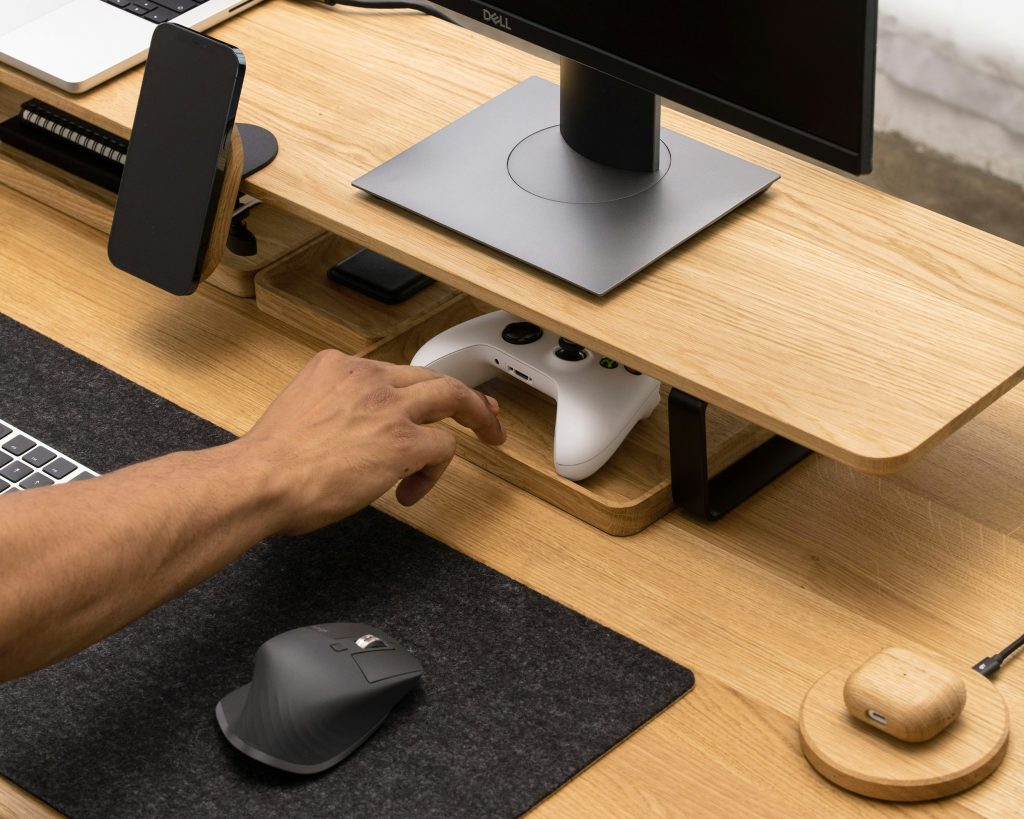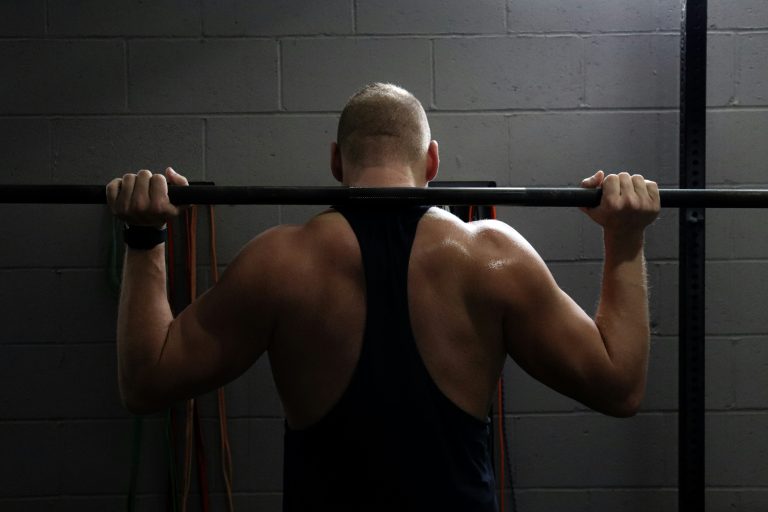How to Build Self Control That Never Fails – 7 Powerful Rules To Maximize Your Discipline
Self-Control Is a Muscle: How to Train It Every Day
Most men think willpower is some magical gift. They watch disciplined guys and assume they were born different. But in reality, they just don’t know how to build self control.
Self-control is a muscle. Like any muscle, it gets stronger when you work it consistently. Skip the gym for months, and your biceps turn to mush. Skip training your willpower, and your life turns to chaos.
This isn’t about motivation. Motivation is for beginners. This is about building unbreakable discipline through daily reps, the same way you build physical strength.

Why This Matters
Without self-control, you’ll always be a slave to your emotions. You’ll start projects but never finish. You’ll have potential, but no progress. Life will become a ruthless cycle of excuses, missed opportunities, and bitter regrets.
This isn’t just about getting things done – it’s about survival in a world designed to distract, tempt, and tear you down if you aren’t prepared to fight back.
Every impulsive action you take, every moment you waste, is another step toward mediocrity and failure.
Ask yourself this: are you okay with being someone’s cautionary tale? Are you willing to watch others thrive while you stay stuck, spinning your wheels in frustration? Because that’s the reality if you don’t step up.
Every time you choose comfort over discipline, you’re choosing to stagnate. You’re choosing to stay weaker than you could be.
And here’s the truth most people won’t tell you – nobody is coming to save you. Nobody cares more about your future than you do.
Your potential is your responsibility. Either take control or prepare to be controlled. The choice is yours, but so are the consequences.
If you’re ready to stop making excuses and start owning your life, keep reading. If not, close the tab.
How to Build Self Control Like a Muscle
Your self-control operates like your deltoids or your quads. It grows through progressive overload. It breaks down when you overtrain. It gets stronger when you give it the right stimulus.
The difference? Most guys know how to train their chest. They have no clue how to train their willpower.
Here’s what the research shows: willpower depletes throughout the day. Make too many decisions, resist too many temptations, and your discipline muscle gets fatigued. But here’s the kicker – just like physical training, consistent stress makes it stronger over time.
Every time you say no to instant gratification, you’re doing a rep. Every time you choose the hard path over the easy one, you’re adding weight to the bar.
Here’s the truth – no one, not even the most disciplined person, resists every temptation right away. You might slip up, give in, or take the easy route after a tough day, and guess what? That’s not failure. That’s the equivalent of your willpower muscle hitting its limit for the day.
But here’s the exciting part – just like in the gym, every time you push to failure, you’re building strength for tomorrow. A few months of refusing to quit, of showing up and fighting even when you stumble, will reshape your ability to endure.
Over time, you’ll notice those temptations that used to win don’t stand a chance anymore, because your willpower muscle is tougher, sharper, and ready for whatever comes next. Progress isn’t perfection; progress is consistency.
Ego Depletion
Ego depletion is the idea that your willpower, like a muscle, can become temporarily exhausted after repeated use.
When you’re constantly making decisions or resisting temptation, it’s natural to feel drained – but this isn’t permanent.
The good news is, just like training a muscle, you can build your mental endurance over time to resist that fatigue.
The Decision Lab made an excellent ego depletion guide that’ll help you fully understand the concept. I’ll link it here; you definitely should understand this in order to maximize your brain.
Want to understand ego depletion and how it impacts your day-to-day power moves? Read this article to learn more.

The Science Behind Self-Control
Self-control isn’t just a vague concept – it’s rooted in neuroscience.
At the core of this process is the prefrontal cortex, the part of your brain responsible for decision-making, focus, and regulating impulses. When you’re faced with a tempting distraction or a fleeting urge, it’s your prefrontal cortex doing the heavy lifting to keep you on track.
But here’s the catch – just like a muscle, it can become fatigued with overuse. That’s where habits come into play.
Habits, once formed, take some of the pressure off the prefrontal cortex by automating behaviors. By intentionally building positive habits, you strengthen your ability to keep moving toward your goals, even when willpower is running low.
Understanding how this works isn’t just science – it’s a tool. Use it.
Micro-Moments: Where Discipline Is Built
Big transformations don’t happen in big moments. They happen in the split seconds when you choose discipline over comfort.
The alarm goes off. You want to hit snooze. You get up anyway. Rep completed.
Your phone buzzes with a notification. You want to check it. You leave it alone. Rep completed.
You’re hungry and want junk food. You eat your planned meal instead. Rep completed.
These micro-moments don’t feel important. That’s exactly why they matter. Champions are built in the moments when no one is watching.
Most people burn out early because their willpower muscle is weak, and the smaller tasks eat up all their energy.
The truth is, focusing on those micro-moments – choosing discipline when it’s inconvenient – demands effort at first. It’s not that you’re incapable; it’s that your mental endurance isn’t built yet.
But here’s the secret: just like any muscle, your willpower grows stronger with repetition. Over time, those small decisions that once felt exhausting become automatic. You don’t even think twice.
And when the small stuff stops draining you, you suddenly find the capacity to tackle the bigger challenges with less resistance. What used to feel impossible becomes inevitable.
Your willpower muscle gets stronger through these tiny victories. String enough together, and you become unstoppable.

My Story: When I Failed Repeatedly
I wasn’t always disciplined. I was weak, distracted, and addicted to comfort.
I’d set goals and quit within days. I’d start workout programs and abandon them. I’d promise myself I’d stop wasting time, then spend hours scrolling on my phone.
The turning point came when I realized I was treating discipline like a light switch – either on or off. I needed to treat it like strength training. Start small. Progress gradually. Never skip the fundamentals.
I started with one simple rule: make my bed every morning. Not because it mattered, but because it was my first rep of the day. My first victory.
From there, I added one small challenge each day. Cold showers. No phone for the first hour. Saying no to social plans when I had work to do.
Willpower works just like any other muscle – I had to progressively overload it to make it stronger. I didn’t start lifting heavy weights my first day at the gym, and the same goes for discipline.
Push yourself just enough to grow, but if you’re feeling burned out or overwhelmed, don’t pile on more stress. Stick to the habits you’ve already built, and focus on mastering them until they become second nature.
Once those actions feel effortless, that’s your signal to level up. Challenge yourself again, and repeat the cycle. Growth doesn’t happen overnight – it happens through consistency and smart effort.
Each small win builds confidence. Each rep makes the next one easier.
Your Self-Control Training Plan
Like any good training program, building discipline requires structure. Here’s your roadmap:
Day 1-2: Foundation Building
Start with one non-negotiable daily habit. Something simple but meaningful. Make your bed. Do 10 push-ups. Read for 10 minutes.
The goal isn’t transformation. It’s consistency. You’re building the neural pathways that will carry you through harder challenges.
Day 3-4: Adding Resistance
Add one more habit. Now you’re managing two daily commitments. This is where most people break. Push through. Your willpower muscle is adapting.
Day 5-6: Progressive Overload
Increase the difficulty. If you were doing 10 push-ups, do 15. If you were reading for 10 minutes, read for 20. You’re teaching your brain that growth requires discomfort.
Day 7-8: Stress Testing
Add a third habit. Now you’re juggling multiple commitments, and your discipline is being tested. This is where champions separate from quitters.
Day 9+: Maintenance and Growth
Your habits are becoming automatic. Your willpower muscle is strong. Now you can tackle bigger challenges – starting that business, cutting bad relationships, pursuing ambitious goals.
Remember to Pause
Feeling overwhelmed? That’s okay – it’s part of the process. Pausing doesn’t mean you’re weak; it means you’re smart enough to know your limits. Discipline is about sustained growth, not burnout. If the weight of your commitments feels too heavy, step back and stabilize. Stick to the habits you’ve already built until they feel effortless. Once you’re steady, you’ll be ready to pile on more. Growth is a marathon, not a sprint – keep moving forward with intention.
If you stick to this game plan and truly give it your all, there’s nothing that could come between you and your goals.

Common Traps and How to Resist
The All-or-Nothing Trap
You miss one day and think you’ve failed. Wrong. One missed workout doesn’t make you weak. One missed day doesn’t erase weeks of progress.
Get back on track immediately. No drama. No self-pity. Just action.
The Perfectionist Trap
You want to do everything perfectly from day one. This burns out your willpower fast.
Aim for consistency, not perfection. A mediocre habit you do daily beats a perfect habit you quit.
The Comfort Trap
You start feeling good about your progress and get comfortable. Comfort is the enemy of growth.
When things feel easy, it’s time to add more weight to the bar. Always be pushing your limits.
The Social Pressure Trap
Friends and family will try to pull you back to your old habits. They’re uncomfortable with your growth, and they’ll subconsciously try to pull you down. Notice this, and encourage them to do better as well; it’s working for you, so it’ll also work for them.
Have your standard responses ready. “I’m good, thanks.” “Not today.” “I’m focusing on my goals.”
Your real friends will respect your boundaries. Everyone else wasn’t really your friend anyway.
Remember, a small but productive circle is infinitely better than a large circle of cowards.
Identity as Someone Who Follows Through
The strongest form of discipline isn’t willpower – it’s identity.
When you see yourself as someone who follows through, your actions align automatically. You don’t need to convince yourself to stick to your word. You just do it because that’s who you are.
This shift happens through accumulated evidence. Every time you honor a commitment to yourself, you’re proving your identity as a disciplined person.
Start calling yourself what you want to become. “I’m someone who keeps his word.” “I’m someone who finishes what he starts.” “I’m someone who chooses growth over comfort.”
Your brain will start looking for ways to prove this identity true.
“Belief is all that’s required. If you truly believe you can achieve something, your mind will make it possible.” – Andrew Tate
Self-Accountability Logs
Track your progress like you track your lifts. What gets measured gets managed.
Create a simple daily scorecard. Rate yourself 1-10 on:
- Following through on commitments
- Resisting distractions
- Choosing growth over comfort
- Maintaining your non-negotiables
Review it weekly, not daily. Look for patterns. Where are you strongest? Where do you need work?
Understand your weekly deficit, not your daily. You’re allowed to have bad days sometimes, but if you focus on them too much, it might lead to even more stress and could cause you to quit entirely.
This isn’t about perfection. It’s about awareness. You can’t improve what you don’t measure.

30-Day Willpower Challenge – Level Up
You’ve already proven you can handle discipline. Now it’s time to take things to the next level. This second phase isn’t about maintenance – it’s about growth. Push yourself harder, invest in your future, and master the mental game. Here’s your advanced roadmap:
Days 1-7: Commit to learning a new skill. No half-measures – something that challenges your patience and forces you to focus. Practice daily.
Days 8-14: Prioritize social growth. Reach out to new people, attend networking events, or have meaningful conversations with those in your circle. Push past your comfort zone.
Days 15-21: Go all-in on work or your side hustle. Set a big goal, break it into daily tasks, and crush it. Consistency and effort are non-negotiable here.
Days 22-28: Combine it all. New skills, social challenges, and hard work – every single day. Sustain the grind and prove to yourself how much you can take on.
Days 29-30: Peak performance test. Tackle the hardest challenge you can think of in one of these areas. Exhaust your limits and come out stronger.
The small disciplines laid the foundation. Now it’s time to build. Don’t hold back. Growth requires discomfort, and you’re here to thrive through it. Share your wins, motivate others, and keep showing up. You’ve got this.
Common Pitfalls and How to Overcome Them
You start strong, fired up with determination, and for a day or two, you’re unstoppable.
But then – nothing. Mid-week hits, and the excuses creep in.
“I’ll get back on track tomorrow,” you tell yourself. Sound familiar?
Here’s the truth: routines don’t fail because of time or energy; they fail because you’re waiting to feel motivated. News flash – you won’t always feel like it, and that’s okay. Discipline is your safety net when motivation falters.
Or maybe you’re trapped in the cycle of endless restarts.
You keep chasing the “perfect routine,” resetting every time you stumble. Stop that.
Progress doesn’t demand perfection – it demands consistency, even when it’s messy.
One missed day doesn’t ruin weeks of effort, but spiraling into a “wait-until-Monday” mentality will.
Break that self-sabotage by showing up, even when it’s imperfect. Small actions build unstoppable momentum. Your mindset is either your weapon or your weakness. Choose wisely.
Start Building Your Discipline Today
Self-control isn’t a talent. It’s a trainable skill.
Every champion was once a beginner. Every strong man was once weak. Every disciplined person was once scattered and unfocused.
The difference isn’t where they started. It’s that they started.
Your willpower muscle is waiting to be trained. It’s ready to grow. It’s ready to make you unstoppable.
But it won’t train itself.
Pick one small habit. Something you can do today. Something that moves you toward the person you want to become.
Do it. Then do it again tomorrow.
Your future self is counting on you to start today.
If you’re struggling to detach from your vices and need a guide to reset your brain, read my Dopamine Detox Blueprint. It’s the perfect first step.







